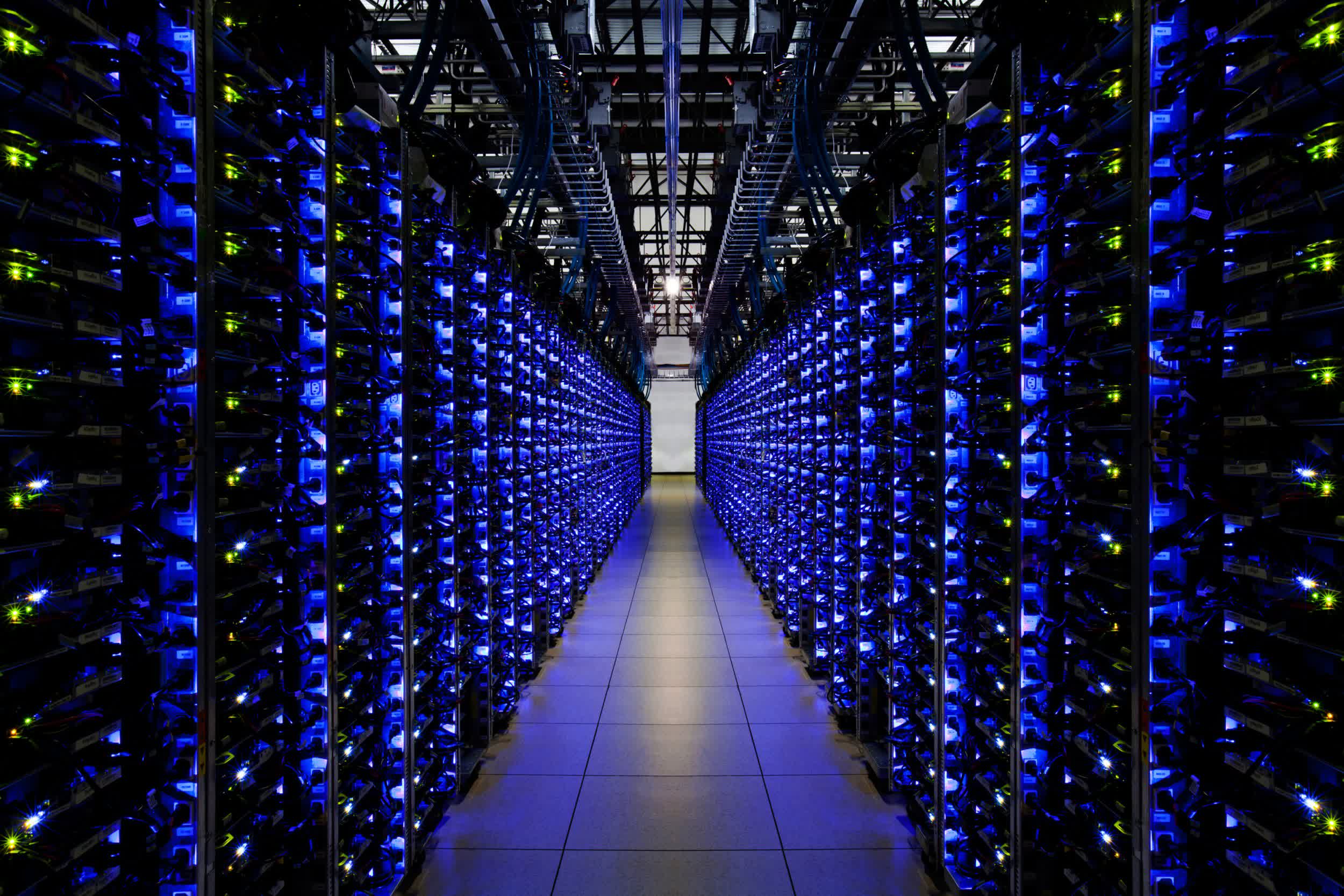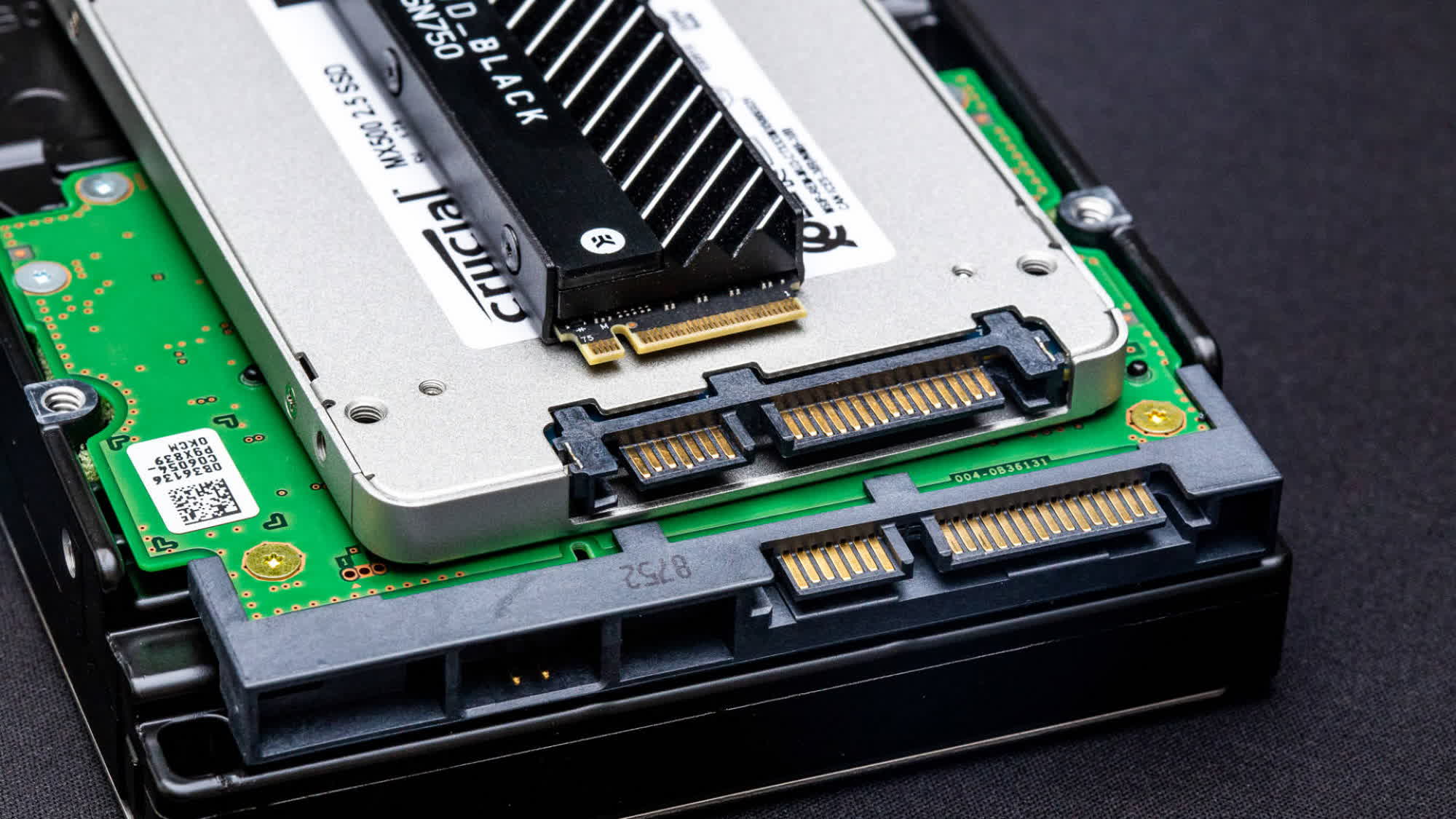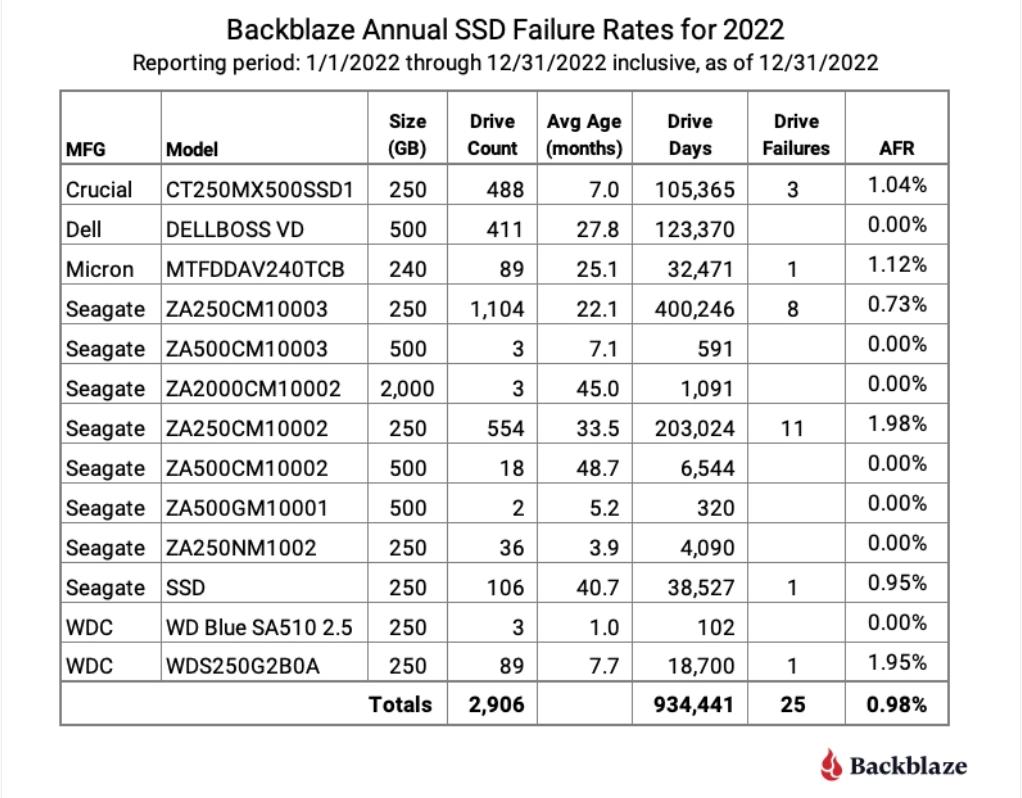In context: Backblaze is a California-based company dealing with cloud storage and data backup services. Every year, the organization provides some interesting reliability data about the large fleet of storage units employed in its five data centers around the world.
For the first time, Backblaze's latest report on storage drive reliability is focusing on Solid State Drives (SSD) rather than HDD units alone. The company started using SSDs in the fourth quarter of 2018, employing the NAND Flash-based units as boot drives rather than data-storing drives. Backblaze uses consumer-grade drives, providing Annualized Failure Rate (AFR) information about 13 different models from five different manufacturers.
The 2022 Drive States review is based on data recorded from 2,906 SSD boot units, Backblaze states, and it is essentially confirming what the company was saying in its 2022 mid-year report. SSDs are more reliable than HDDs, Backblaze says, as they show a lower AFR rate (0.98%) compared to HDDs (1.64%).
The fact that the difference in reliability level isn't exactly staggering (0.66% AFR) is rather surprising, however, as SSDs are essentially just moving electrons through memory chips while hard drives have to deal with a complex (and failure-prone) mechanism employing spinning platters and extremely sensitive read/write magnetic heads.
The reasons behind failing drives aren't known, as only an SSD manufacturer would have the equipment needed to make a reliable diagnose. For 2022, Backblaze says that seven of the 13 drive models had no failure at all. Six of those seven models had a limited number of "drive days" (less than 10,000), the company concedes, meaning that there is not enough data to make a reliable projection about their failure rates.
An interesting tidbit about Backblaze's report is that the company hasn't used a single SSD unit made by Samsung, which is a major player in the SSD consumer market. One possible explanation is that Samsung drives aren't cheap, and Backblaze is essentially using the cheapest drives they can buy in bulk quantities.

Aside from the small difference in reliability between HDDs and SSDs, another (unpleasant) surprise coming from the latest Backblaze report is how useless SMART reporting can be when it comes to solid-state disks.
The Self-Monitoring, Analysis, and Reporting Technology (SMART) attributes have been historically used to report and analyze HDD's general health, but SSD manufacturers are using those stats inconsistently and in a non-standardized way. This means that you can't make a valid comparison between different drive models based on SMART stats alone.

